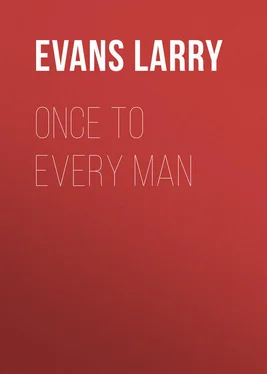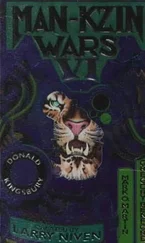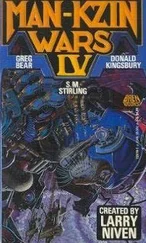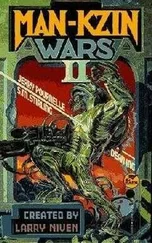Larry Evans - Once to Every Man
Здесь есть возможность читать онлайн «Larry Evans - Once to Every Man» — ознакомительный отрывок электронной книги совершенно бесплатно, а после прочтения отрывка купить полную версию. В некоторых случаях можно слушать аудио, скачать через торрент в формате fb2 и присутствует краткое содержание. Жанр: foreign_antique, foreign_prose, foreign_sf, на английском языке. Описание произведения, (предисловие) а так же отзывы посетителей доступны на портале библиотеки ЛибКат.
- Название:Once to Every Man
- Автор:
- Жанр:
- Год:неизвестен
- ISBN:нет данных
- Рейтинг книги:5 / 5. Голосов: 1
-
Избранное:Добавить в избранное
- Отзывы:
-
Ваша оценка:
- 100
- 1
- 2
- 3
- 4
- 5
Once to Every Man: краткое содержание, описание и аннотация
Предлагаем к чтению аннотацию, описание, краткое содержание или предисловие (зависит от того, что написал сам автор книги «Once to Every Man»). Если вы не нашли необходимую информацию о книге — напишите в комментариях, мы постараемся отыскать её.
Once to Every Man — читать онлайн ознакомительный отрывок
Ниже представлен текст книги, разбитый по страницам. Система сохранения места последней прочитанной страницы, позволяет с удобством читать онлайн бесплатно книгу «Once to Every Man», без необходимости каждый раз заново искать на чём Вы остановились. Поставьте закладку, и сможете в любой момент перейти на страницу, на которой закончили чтение.
Интервал:
Закладка:
“Hours and hours,” she murmured, counting the strokes subconsciously.
And then as the growing total of those gong strokes beat in upon her brain, all the dreamy preoccupation faded from her face. The little compassionate smile which had accompanied the last words disappeared before the swift, taut change that straightened her lips. She whirled, peering from startled eyes up at the dim old dial, refusing to believe her own count; and as she stood, body tensely poised, gazing incredulously at the hands, she realized for the first time how fast the hours had flown while she bent, forgetful of all else, over her paper patterns.
The table rocked dangerously as she crowded her body between it and the windowsill and, back to the light, stood staring with her face cupped in her hands out into the blackness. Far across the valley the dilapidated farmhouse on the ridge showed only a blurred blot against the skyline.
Minutes the girl stood and watched. The minutes lengthened interminably while the light for which she waited failed to show through the dark, until a dead white, living fear began to creep across her face–a fear that wiped the last trace of childishness from her tightened features.
“He’s late,” she whispered hoarsely. “It’s the last week, and it’s just kept him later than usual!”
But there was no assurance in the words that faltered from her lips. They were lifelessly dull, as though she were trying to convince herself of a thing she already knew she could not believe.
As long as she could she stood there at the window, doggedly fighting the rising terror that was bleaching her face; fighting the dread which was never quite asleep within her brain–the dread of that old stone demijohn standing in the corner of the kitchen, which for all her broken pleading Young Denny Bolton had refused with a strange, unexplained stubbornness to remove–until that rising terror drove her away from the pane.
One wide-flung arm swept the stack of neatly folded patterns in a rustling storm to the floor as she pushed her way out from the narrow space between table edge and sill. The girl did not heed them or the lamp, that rocked drunkenly with the tottering table. She had forgotten everything–the thick white square of cardboard, even the stooped old man in the small back room–in the face of the overwhelming fear that reason could not fight down. Only the peculiarly absolute silence that came with the sudden cessation of his droning monotone checked the panic haste of her first rush. With one hand clutching the knob of the outer door she turned back.
John Anderson was sitting twisted about on his high stool, gazing after her in infantile, perplexed reproach, his long fingers clasped loosely about the almost finished figure over which he had been toiling. As the girl turned back toward him his eyes wandered down to it and he began to shake his head slowly, vacantly, hopelessly. A low moaning whimper stirred her lips; then the hand tight-clenched over the knob slackened. She ran swiftly across to him.
“What is it, dear?” Her voice broke, husky with fright and pity. “Tell me–what is the matter? Won’t it come right tonight?”
With shaking hands she leaned over him, smoothing the shining hair. At the touch of her fingers he looked up, staring with pleading uncertainty into her quivering face before he shook his head.
“It–it don’t smile,” he complained querulously. His fingers groped lightly over the small face of clay. “I–I can’t make it smile–like the rest.”
Sudden terror contorted the thin features, a sheer ecstacy of terror as white-lipped as that which marred the face of the girl who bent above him.
“Maybe I’ve forgotten how she smiled!” he whispered fearfully. “Maybe I’ll never be able to–”
Dryad’s eyes flitted desperately around the room, along the shelves laden with those countless figures–all white and finely slender, all upturned of face. Again a little impotent gasp choked her; then, eyes filling hotly at that poignantly wistful smile which edged the lips of each, she stooped and patted reassuringly the trembling hands before she stepped a pace away from him.
“You’ve not forgotten, dear. Why, you mustn’t be frightened like that! We know, you and I, don’t we, that you never could forget? You’re just tired. Now, that’s better–that’s brave! And now–look! Isn’t this the way–isn’t this the way it ought to be?”
Face uptilted, bloodless lips falling apart in the faintest of pallid smiles, she swayed forward, both arms outstretched toward him. And as she stood the wide eyes and straight nose and delicately pointed chin of her colorless face took line for line the lines of all those, chalky white, against the wall.
For a moment John Anderson’s eyes clung to her–clung vacant with hopeless doubt; then they glowed again with dawning recollection. He, too, was smiling once more as his fingers fluttered in nervous haste above the lips of the clay face on the bench before him, and almost before the girl had stepped back beside him he had forgotten that she was there.
“Marie!” she heard him murmur. “Marie, why, you mustn’t be afraid! We’ll never forget–you and I–we never could forget!”
Even while she waited another instant those plastic earthen lips began to curl–they began to curve with hungry longing like all the rest. He was talking steadily now, mumbling broken fragments of sentences which it was hard to understand. Her hand hovered a moment longer over his bowed head; once at the door she paused and looked back at him.
“It’s only for a little while,” she promised unsteadily. “I–I have to go–but it’s only for a little while. I’ll be back soon–so soon! And you’ll be safe until I come!”
He gave no sign that he had heard, not even so much as a lifted glance. But as she drew the door shut behind her she heard him pick up the words, caressingly, after her.
“You’ll be safe, Marie,” he whispered. “It’ll be only for a little while, now. You’ll be safe till I come.” An ineffably peaceful smile flickered across his face. “We couldn’t forget–why, of course, we couldn’t forget–you and I!”
With the short black skirt lifted even higher above her ankles that she might make still more speed, Dryad turned into the dark path that twisted crookedly through the brush to the open clearing beside the brook and from there on to the black house on the hill.
She ran swiftly, madly, through the darkness, with the wild, panic-stricken, headlong abandon of a hunted thing, finding the narrow trail ahead of her by instinct alone. Only once she overran it, but that once a low hanging branch, face high, caught her full across the forehead and sent her crashing back in the underbrush. Just once she put one narrow foot in its loosely flapping shoe into the deep crevice between two rocks and gasped aloud with the pain of the fall that racked her knees. When she groped out and steadied herself erect she was talking–stammering half incoherent words that came bursting jerkily from her lips as she tore on.
“Help me … in time … God,” she panted, “Just this once … get to him … in time. Lord, forgive … own vanity. Oh, God, please in time!”
Small feet drumming the harder ground, she flashed up the last rise and across the yard to the door of that unlighted kitchen. Her hands felt for the latch and failed to find it; then she realized that it was already open–the door–but her knees, all the strength suddenly drained from them at the black quiet in that room, refused to carry her over the threshold. She rocked forward, reaching out with one hand for the frame to steady herself, and in that same instant the man who lay a huddled motionless heap across the table top, moved a little and began to speak aloud.
Читать дальшеИнтервал:
Закладка:
Похожие книги на «Once to Every Man»
Представляем Вашему вниманию похожие книги на «Once to Every Man» списком для выбора. Мы отобрали схожую по названию и смыслу литературу в надежде предоставить читателям больше вариантов отыскать новые, интересные, ещё непрочитанные произведения.
Обсуждение, отзывы о книге «Once to Every Man» и просто собственные мнения читателей. Оставьте ваши комментарии, напишите, что Вы думаете о произведении, его смысле или главных героях. Укажите что конкретно понравилось, а что нет, и почему Вы так считаете.












